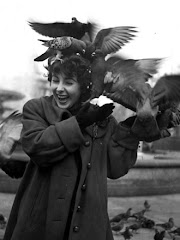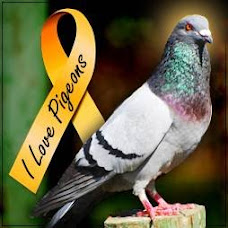Tampa Exotic Pets Examiner
On Memorial Day, thank a pigeon.
May 24, 7:39 AM
Where there are humans, there are companion animals. Even in war zones. During World War One, the 'state of the art' method for sending messages was by pigeon. Some pigeons even earned medals, although I don't know if this impressed the pigeon at all. Historically, camels, mules, and horses have transported soldiers and supplies. Soldiers also kept animals simply because they liked them, including tortoises, doves, larks, thrushes, blackbirds, and rabbits.
Right now in Iraq, despite all our modern technology, we depend on dogs for finding dangers, dolphins to find underwater mines, sea lions to patrol for enemy divers, and pigeons to serve as early warnings of chemical attacks. According to the website (www.travlingdogs.com) the dolphins are smart enough to avoid the mines once they've found them.
The more I study and learn about different species, the more I realize that humans do not have any truly unique capabilities. Everything humans do, at least one other species does, if in its own way. We are not the only species whose conflicts expand until they harm others who were in no way involved in the original conflict. Human war is, however the most extreme example of this behavior.
You want soldiers to have everything that will help them survive the hard work they're doing. Anything that makes their lives a little easier or safer is good. On the other hand, you have to seriously question what the dogs, sea lions, pigeons, and dolphins have to do with human political problems, and why they should be taken from their own business or put at risk over human wars. For now, the best solution I can think of is to 'pay our debts forward'. Protect habitats for sea lions and dolphins and birds. Go out of your way to make life good for domestic animals. Most important, try to find ways to keep all conflicts and the damage they cause under control, instead of letting the conflict control us.
For more info:
www.greatwardifferent.com/Great_War/Animals_at_War/Animals_at_War_00.htm
www.awm.gov.au/kidshq/animals/animals.asp
www.travelingdogs.com/wariniraq.html
Sunday, May 24, 2009
Subscribe to:
Post Comments (Atom)












No comments:
Post a Comment